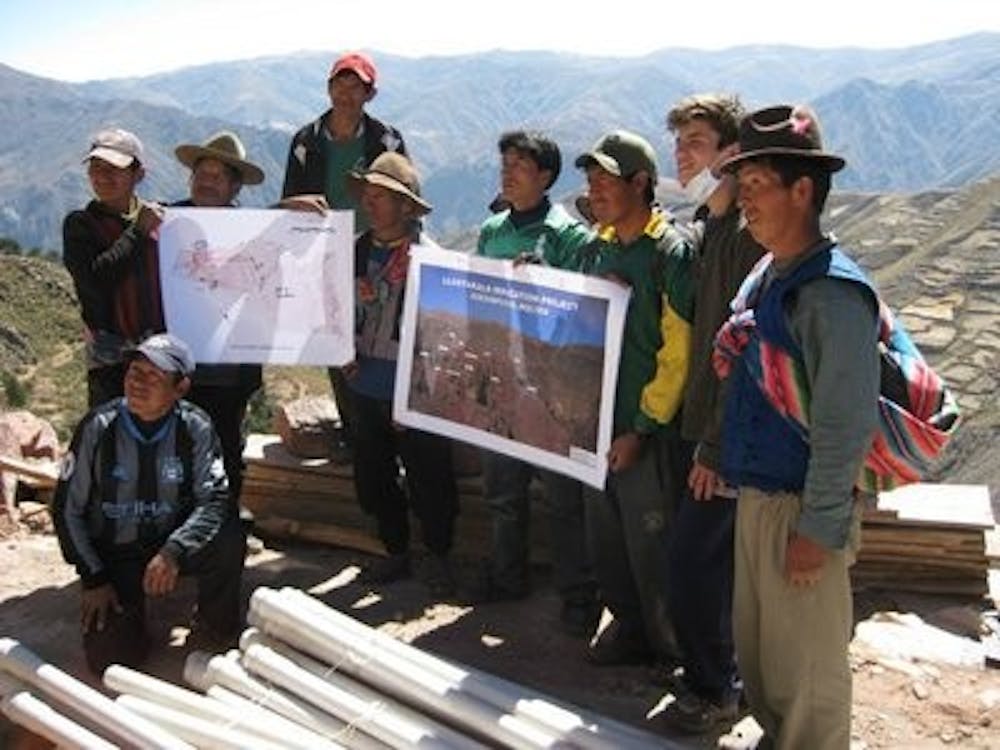Auburn students are crossing borders and using their skills to make a difference for hundreds of families.
"Engineers Without Borders is a service outreach group with the College [of Engineering]," said Jourdan Beaumont, president of Engineers Without Borders. "It's a way for students to volunteer their time to help out the community somewhere in the world."
This year, they took a trip to Quesimpuco, Bolivia, located in the Andes Mountains.
Beaumont said their partnership focused on water security, and any type of project to help them secure more water for farming, eating, drinking, irrigation, hydroponics and showers.
The trip took place in August, and lasted 10 days.
"In previous years, [the team] installed a tank on the side of the mountain and what we've been doing with it is building an irrigation system off of it," said Carson Smith, junior in civil engineering. "It's a series of pipelines and sprinklers that they use during their dry season to secure their crop production."
Smith said they also had a hydroponics team working in the greenhouse, where they used recycled and fertilized water to grow plants.
To get to Quesimpuco, the group landed in La Paz, Bolivia, and drove 12 hours to the community.
Stephen Smart, senior in civil engineering, said they stayed in bunkhouses that had a kitchen and a meeting area. There were gates surrounding the houses.
"The gates are there because people are so excited about visitors when we're trying to have meetings, you'll have 100 little third graders running in," Beaumont said. "They'll be climbing on the windows watching you cook, everyone's super excited to see you."
Beaumont described the Bolivian people as friendly, with a welcoming culture.
"It's like you're just part of the family right away," Beaumont said.
While the people were welcoming, the difference in native languages was a challenge for the team.
"The language barrier made it difficult," Smith said. "Sometimes, they would have to use two different translators before they could understand each other."
However, the language barrier was part of the learning process.
"The idea is, that this group lets students become better engineers, become better business people, marketers, cross-cultural communications," Beaumont said. "Just a unique way to develop a lot of different skills."
Smith said his best memory from the trip was on the last day of work when they turned on the sprinkler system the group had been working on.
"I was with one of the community leaders, up by the tank, and he just started absolutely crying because he knew that the difference just from one sprinkler... the difference that that would make in the crop production and in the lives of all the people that live in that area," Smith said. "It was beautiful."
Engineers Without Borders is not exclusively for engineering students. Any student may become involved with the group and help in some way.
"There's a lot of students in the group who are really dedicated to doing something more with their time than just playing Nintendo and watching TV," Beaumont said. "That's inspiring that you want to be a part of that... it's really rewarding as an engineering student, and it's also really rewarding as a person helping other people."
Engineers Without Borders meets once a week, and invites guest speakers to talk about topics, such as sustainability and other topics relevant to the work they are doing, in Quesimpuco.
For more information, visit Eng.Auburn.edu/organizations/EWB.
Do you like this story? The Plainsman doesn't accept money from tuition or student fees, and we don't charge a subscription fee. But you can donate to support The Plainsman.





